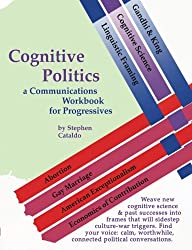George Lakoff asks and answers: "Why are staunch Republicans fine with tear gassing refugee children? It's the conservative moral hierarchy."
This list feels like a dangerous exaggeration to hand to liberals. This is a way to listen to conservatives less. I'm not saying you can't find bits of truth in this list — I'm saying that this is definitely not the whole truth, that this is the worst angle to see conservatives, and that this list in the hands of liberals will make us less capable communicators.
I think calling it a "moral hierarchy" is also an exaggeration — not that you couldn't find some support for that view, but it's incomplete and negative.
I think it's much more powerful to see a "focus hierarchy" for many issues. Conservatives are more focused close to home: they care more about this side of the border, where "the law" is a key ingredient, than the other side of the border, where parents are fleeing with their children.
For liberals, the answer then is to find stories of humanity from the other side of the wall, detailed and personal, to bring them into focus. We need the story of a parent from Honduras, someone with a name, someone with kids who have names that are in our story, what they faced there, why they made their decisions. We need to begin the story away from the US and US law — away from the points of contention — and have a limited, memorable, personal couple of stories of refugees that we repeat over and over.
For progressive who want to help, who want to win elections, the answer is not to figure out what we dislike the most about conservatives and reinforce it, but look for commonality — especially use things like this moral hierarchy to look for *blinders* and filters, and try to counter them. There's a big difference between someone wearing blinders that prevent them from seeing an evil, from someone who rubs their hands in evil glee.
###
I strongly recommend that liberals read Lakoff's "Don't Think of an Elephant." But then combine the ideas with Arlie Russell Hochschild's "Strangers in Their Own Land" which actually listens to conservatives, and "The Righteous Mind" by Jonathan Haidt that aims to see the best in conservatives (where, from the list above, it's clear Lakoff is looking for the worst.)
